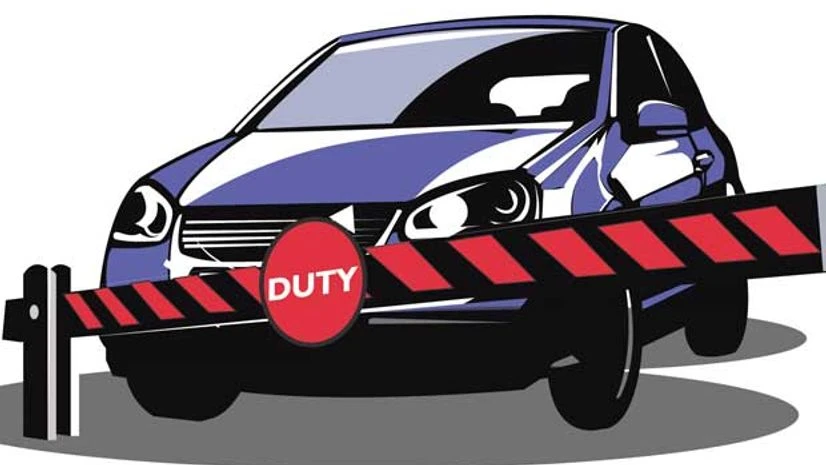The automobile sector has in the run-up to the next Union budget sought lower excise duty of 20 per cent on mid size, larger cars and sports utility vehicle (SUVs). It is likely that Finance Minister Arun Jaitely may heed to the demand of industry by offering financial incentives on surrender of vehicles aged 15 years.
Small cars now attract an excise duty of 12.5 per cent, mid-size cars 24 per cent, larger cars 27 per cent and sports utility vehicles 30 per cent. Makers of sedans and utility vehicles are at a disadvantage to companies that sell more small cars.
| KEY SUGGESTIONS |
|
In its representation to the Union finance ministry, the Society of Indian Automobile Manufacturers (Siam) has said automobiles are among the highest taxed manufactured products and rationalisation of taxes will increase sales and contribute to employment.
More From This Section
Sources in the ministry of road, transport and highways also indicated that Finance Minister Arun Jaitley may offer financial incentives on surrender of vehicles that are more than 10 years old in the upcoming Budget.
Sources, however, said the policy might be initially for commercial vehicles and later it would be extended to private vehicles, as the latter is better maintained and is less polluting.
The sources said during a pre-Budget consultation meeting, road transport and highways minister Nitin Gadkari urged Jaitley to provide incentive in the form of excise duty on purchase of new vehicles by surrendering old ones. This was followed by a consultative meeting with finance ministry officials last month in which the proposal was submitted, confirmed sources in the finance ministry.
Earlier, Gadkari had said the ministry was planning to introduce a scheme wherein a person would be entitled for a discount of up to Rs 50,000 on new purchase if she sells her old vehicle. For small vehicles like cars, it's up to Rs 30,000. Besides, there would be tax exemptions and the total benefit for big vehicles like trucks would be up to Rs 1.5 lakh. Such ‘cash-for-clunkers’ schemes have been introduced in some countries like the US, the UK, Germany, France and Spain, for limited periods.
Siam has suggested a cash incentive of Rs 4,500 for two-wheelers, Rs 13,000 for three-wheelers, Rs 80,000 for passenger vehicles and Rs 90,000 for commercial vehicles. The incentive is to be offered on the purchase of the next vehicle.
Siam estimates 30 million vehicles, 80 per cent of which are two-wheelers, are older than 15 years. Sales of two-wheelers grew by just 0.86 per cent in 2015. Sales of motorcycles, which make up for over 60 per cent of two-wheeler sales, declined three per cent. This was offset by 13 per cent growth in scooter sales.
Siam has indicated the government might lose Rs 56,665 crore because of the retirement incentive, half of which will be needed to scrap 3.6 million passenger vehicles. A total of 2.77 million passenger vehicles were sold in the country in 2015.
The revenue generated by the government from new sales will be higher than the outgo, according to Siam.
Siam has said all indirect taxes, including road tax, research cess and octroi should be subsumed within the proposed goods and services tax.
If road tax is kept out the benefit of the new tax will be undermined, it says.
State governments do not levy a uniform road tax on vehicles and Siam feels unless it is subsumed within the goods and services Bill, states will continue to change rates for more revenue.

)
